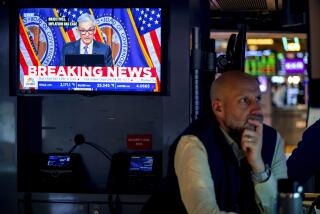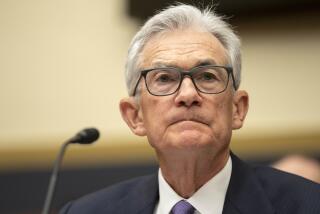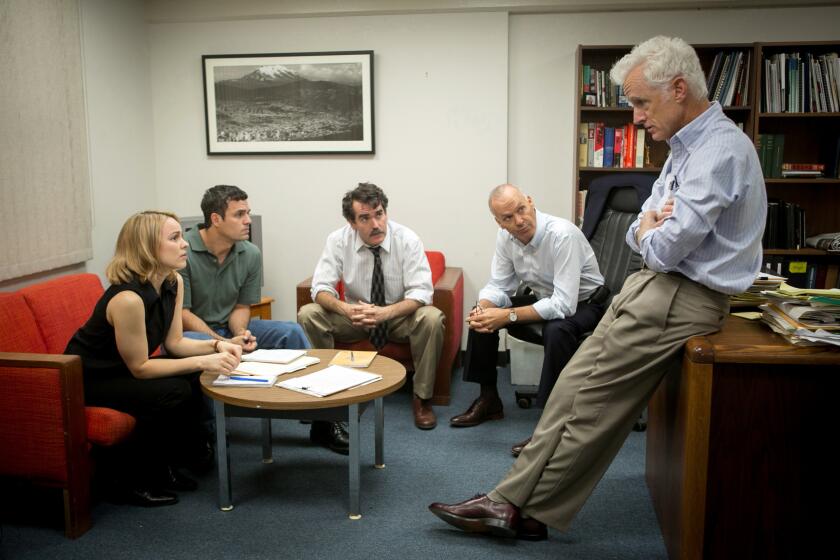IMF, downgrading U.S. growth outlook, cautions investors about interest rates
The International Monetary Fund sharply lowered its U.S. growth projection for the year and issued a cautionary note to investors: Don’t be too confident about interest rates.
Like others in the economic forecasting business, the IMF downgraded its U.S. outlook Monday after first-quarter activity was hammered by harsh winter weather in much of the nation. Including that poor start, the fund now estimates the American economy to grow a modest 2% overall this year, down from its April projection of 2.8%.
The IMF’s managing director, Christine Lagarde, stressed that the weakness was temporary and that the U.S. economy was now gaining momentum. The Federal Reserve, for instance, issued a report Monday showing strong industrial production. The IMF left unchanged its forecast for 3% growth in 2015.
At the same time, the IMF is more cautious than many others about the longer-term prospects. Looking further into the future, the international lender of last resort sees U.S. growth averaging 2% a year, compared with 3% in prior decades, largely the result of slower gains in productivity and the labor force.
The nation won’t return to full employment of close to 5%, from 6.3% now, until the end of 2017, the IMF predicted, and inflation is likely to remain below the Fed’s 2% target for some time.
Under such a scenario, Lagarde said, the Fed’s benchmark interest rate could stay near zero for longer than the mid-2015 date widely expected by financial markets.
The economic outlook, particularly the labor market, is fraught with uncertainty, she said in a news conference in Washington, yet she indicated that there is a lot of certainty in financial markets about the Fed’s interest rate policy.
Fed officials will be updating their economic, unemployment and inflation projections when they meet Tuesday and Wednesday for their regular policy meeting.
Policymakers are expected to cut their bond-buying stimulus program further and to maintain the central bank’s estimate that it probably would start raising interest rates around the middle of next year.
Like Lagarde, Fed Chairwoman Janet L. Yellen has expressed concerns about the large numbers of long-term unemployed and other weaknesses in the labor market not captured in the jobless rate.
Yellen and her colleagues also will be weighing these and other economic indicators as they deliberate on what signals they want to give to investors in their public statement to be released Wednesday and in Yellen’s subsequent news conference.
Lagarde urged Yellen to consider holding more news conferences to explain Fed policy and thinking. Since 2011, the Fed has set a pattern of meeting with reporters every quarter when economic forecasts are updated.







